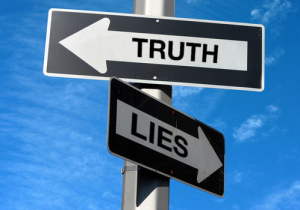Nora, 43, has a successful career as a free-lance magazine writer with two children. �She’s been married for 15 years to Ken, a media executive. �They’re typical of many couples today � committed to their relationship and family as much as to their careers. Yet something troubles them. It�s what�s happened along the way during their marriage.
There�s nothing �wrong� with it, exactly. But the excitement and energy, the feelings of connection and passion that were once there have gradually faded over the years.� �The old feelings haven�t exactly disappeared,� Nora says. �Now and then it feels something like it used to. But mostly it feels like our relationship has ‘flatlined.��
Another person, David, recently celebrated the eleventh anniversary of his second marriage. �He describes a similar shift a bit more sardonically, saying that his relationship has settled into a state of �depressing comfortableness.�� He�s thought about having an affair.
If these laments sound familiar to you, it�s likely because most men and women find that their long-term marriages (I�m defining “marriage” to describe all committed relationships, straight or gay) tend to head south over time.
Gradually, they descend into what I call the Functional Relationship.
Most people think it�s inevitable, but there�s a unique way to liberate yourself from it.� It�s learning to �leave� your relationship in order to transform it.� You do that through becoming �indifferent.�
First, let�s look at what typically happens in the Functional Relationship.� The relationship continues to �work� fairly well, but mostly in a transactional way, around the logistics of daily life: �I thought you were taking the car in for repair.� �Whose turn is it to take the kids to soccer practice on Saturday?�
Sometimes, it becomes more adversarial: �Why did you schedule the plumber for tomorrow when you knew you couldn�t be here? I told you that I have a meeting I can�t miss.�
But even when �functioning� goes fairly smoothly, feelings of passion or even fun just hanging out together diminish, especially in contrast to how it felt early on in the relationship.� As I�ve studied contemporary marriages in our post-9-11/post-economic meltdown-world of the 21st Century, I find that couples experience this diminishment in three main ways:
- Decreased emotional intimacy and sharing of feelings.
- Less equality in decisions and daily interactions, which are often tinged by power-struggles and silent maneuvering for the �upper hand.�
- And dampened sexuality, both in quantity and quality.
A note about that third item: Even when arousal is jacked up by Viagra or the new products purporting to enhance women�s desire, your libido � desire for the person you�re with � remains diminished. �That�s no surprise, because the latter is relationship-dependent. It remains unaffected even if you�re physiologically able to become aroused.
Overall, couples in a Functional Relationship report a diminished sense of connection with each other.� Sometimes it�s a feeling of not being on the same wave-length.
Most people assume that the Functional Relationship is completely “normal;” just a sad reality of adult life. Some are resigned to it as just one more part of the �long slide home,� as one 47-year-old journalist described his experience of midlife. Of course, not everyone feels so bleak, but many would agree with this woman�s lament about her 18-year relationship: �What was once a bright flame has turned into a pilot light.�
You, too probably assume that romantic and sexual connections are supposed to fade over time. Common sense seems to tell you so. After all, you�re seeing the same person day-in and day-out, not just when he or she is most attractive. �And like the majority of couples today, you�re probably dealing with the impact of multitasking, dual-career lives. Raising children in addition absorbs enormous time and energy. �Just trying to carry on in this uncertain, unpredictable world adds another huge layer of stress.
If everyday experience doesn�t convince you that the Functional Relationship is inevitable, there are the pronouncements of various experts. For example, some researchers claim that brain chemicals such as dopamine, norepinephrine, and phenylethylamine, associated with sexual excitement or desire, decline with familiarity. At the same time, oxytocin and endorphins, which generate feelings of quiet comfort and calm, rise. Therefore, they say, you are going to feel diminished desire for your partner over time.
Many marriage and relationship experts advocate just accepting this decline and learning to be happy with it. For example, in her �book Surrendering to Marriage Iris Krasnow advocates learning to appreciate and live with the security and comfort that come along with the �inevitable� decline � unless, of course, you want to go down the slippery slope of an affair, or dumping your partner altogether and look for a new one. ��It�s easy to think it�s best to stop complaining about what you don�t have and learn to live with lowered expectations.
If all of the above is really true, then you�d better resign yourself to the fact that a �passionate marriage� is an oxymoron.
But before you do that, consider this: Descending into the Functional Relationship is neither natural nor inevitable. �True, the experience is widespread. But most people descend into the Functional Relationship because it�s the natural outcome of how you learn to engage in love relationships to begin with. �As I wrote in a previous post, it�s a version of adolescent romance. Its features � like intense arousal by a new person; infatuation, often followed by deflation; manipulating and game-playing, are part of normal adolescent development. But we carry them into our adult experience. And �that model of love can�t sustain long-term connection and vitality.
Becoming �Indifferent�
Through my research and clinical work I’ve been discovering how and why some people defy the norm and generate new energy and vitality within their long-term relationships. I�m convinced that there�s a way out of the Functional Relationship. There�s even a way to avoid it altogether.� I call it the art of Creative Indifference. Continue reading →
 An interesting new study of 5000 adults conducted by researchers at the University of Michigan finds that there’s an important link between what goes on in your relationship with your intimate partner and the likelihood of depression over the years. That is, the poorer the quality of the relationship, the more likely the person was to become depressed over time, Researchers found that people with the lowest quality relationships had more than twice the risk of depression than people with the best relationships. The quality of a person’s relationships overall was also linked with future depression potential, but the relationship with one’s spouse was most significant.
An interesting new study of 5000 adults conducted by researchers at the University of Michigan finds that there’s an important link between what goes on in your relationship with your intimate partner and the likelihood of depression over the years. That is, the poorer the quality of the relationship, the more likely the person was to become depressed over time, Researchers found that people with the lowest quality relationships had more than twice the risk of depression than people with the best relationships. The quality of a person’s relationships overall was also linked with future depression potential, but the relationship with one’s spouse was most significant.





